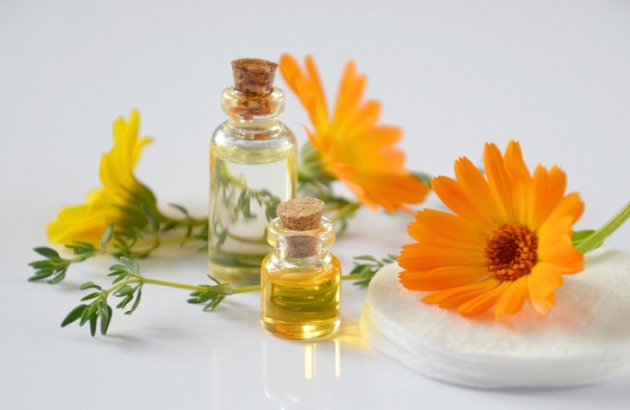Aromatherapy is a form of healing using plant extracts, such as essential oils. It can be used to treat a wide range of symptoms.
Traditionally, aromatherapy has been used to alleviate pain, stress, fatigue, depression and insomnia. It can also be helpful for treating skin ailments and infections.

Table of Contents
1. Relieve Stress
If you’re looking for a stress-reducing strategy to boost your productivity, aromatherapy is one option to consider. It can relieve stress, anxiety and even insomnia by promoting relaxation.
Essential oils are extracts from the flowers, leaves, seeds or roots of plants and contain different chemical compounds. Each oil has its own therapeutic value. For example, lavender oil has a relaxing effect on the nervous system and is thought to help reduce stress and promote restful sleep.
While it’s best to consult a trained aromatherapist for guidance, you can incorporate aromatherapy into your daily routine in a number of ways. Try diffusing essential oils via a diffuser or using them topically by applying them to your skin.
Another great way to use essential oils for stress relief is to put them in a bowl of hot water and inhale the steam. This will allow the scent to travel throughout your entire body.
Aside from the steam inhalation method, you can also diffuse your favorite essential oils directly into your room by placing them on a candle or oil burner. This is a great way to get a quick dose of your favorite aromas and will boost your mood on-the-go.
It’s also a good idea to diffuse oils before going to bed so that you can wake up feeling refreshed. Diffusing energizing essential oils such as citrus, peppermint, ginger or eucalyptus can improve your mental focus and energy levels for the day.
Another study found that aromatherapy reduces stress by improving alertness and cognitive function. It also helps maintain performance during stress by reducing cortisol levels. Moreover, it can also help decrease feelings of depression and improve mental fatigue.
2. Relieve Anxiety
If you are experiencing feelings of anxiety, aromatherapy can help you relieve them. This form of therapy uses essential oils, which are extracts from plants, by breathing them through your nose or putting them on your skin.
There are many different essential oils that have been proven to help with anxiety. Some of the most popular are lavender and bergamot, both of which have been shown to be effective in relieving symptoms of anxiety.
Another oil that can help is lemon. In fact, lemon oil has been found to boost the levels of norepinephrine, a brain chemical that is linked to motivation.
The best way to use lemon oil is to diffuse it in your home or workplace. Its uplifting scent will keep you feeling happy and relaxed.
Rose is another essential oil that can be used to relieve anxiety. It can also be used to reduce pain, especially during menstruation and pregnancy.
If you need an extra push, you can talk to a mental health professional about your anxiety symptoms. They can develop a management plan that is specifically tailored to your needs.
You can also try meditation. Studies have shown that meditation can help you manage anxiety.
In addition, deep breathing is a great way to help you calm down and relax. There is research that suggests that deep breathing can lower your stress hormones, improve your mood, and even decrease your heart rate.
The next time you are experiencing anxiety, you can try one of these techniques to reduce your symptoms and help you reach your goals. Regardless of how you decide to address your symptoms, remember that anxiety is normal and doesn’t have to control your life.
3. Improve Sleep
If you’re struggling to get a good night’s sleep, aromatherapy can help. It can help you fall asleep more easily, wake up less tired and improve the quality of your sleep in general.
Aromatherapy is the process of using essential oils, which are extracted from plant parts like flowers, leaves, twigs or roots. These oils can then be infused into your body through massage, bath salts, or other topical treatments.
Studies have found that essential oils are effective in improving sleep quality, especially for people with anxiety and depression. And in some cases, they can even improve your overall mood and physical health.
For example, lavender oil is considered one of the best essential oils for promoting a restful sleep. It can also help you fall asleep faster, according to a study published in the Journal of Clinical Sleep Medicine.
Similarly, chamomile is an effective essential oil for reducing anxiety. In fact, research has shown that Roman chamomile aromatherapy reduces stress and improves the quality of sleep for both healthy adults and those with insomnia.
You can use a diffuser to add calming essential oils to your bedroom. This method releases mist continuously throughout the night, which can keep you in a state of tranquility all night long.
It can also be helpful for establishing a bedtime routine. The smell of lavender or bergamot is thought to calm your brain, which can make it easier to fall asleep.
If you’re having trouble sleeping, you can try diffusing aromatherapy essential oils in your room an hour or so before bedtime. Then, simply lie back and relax as you drift off to dreamland.
4. Reduce Pain
Aromatherapy is a holistic health technique that uses essential oils to help treat a variety of illnesses. It can also relieve pain and improve your mood.
When you inhale the smell of an essential oil, your brain activates your limbic system, which regulates emotions, and your hypothalamus, which is responsible for releasing feel-good hormones. This is why aromatherapy can reduce your stress levels and ease anxiety.
Studies have shown that aromatherapy can also improve the quality of life for people who are suffering from chronic pain. For example, lavender oil can improve mood and reduce inflammation in the joints and muscles.
Another study found that eucalyptus and lemongrass oil can decrease pain in rheumatoid arthritis patients. This is because essential oils promote blood circulation and reduce inflammation.
Moreover, it can also boost the immune system, which helps fight off infections and reduce swelling. In addition, it can ease anxiety and depression.
One study analyzed the effects of an aromatherapy program on the psychological health of community-dwelling older people with pain. After four weeks, the participants in the aromatherapy group showed reduced levels of depression, anxiety, and stress.
The researchers believe that this could be due to the positive effect of massage, which was included as part of the aromatherapy program. They said that the touch and attention associated with the massage may be helpful in reducing pain.
However, it is important to note that not all individuals are comfortable with physical contact. A variety of factors, including individual preferences, cultural norms, and physical illness, can contribute to this. It is necessary to investigate these factors and develop an effective method for pain management through touch that is accepted by all patients.
5. Increase Focus
If you find yourself struggling to focus during a busy day, aromatherapy can help. This ancient therapy uses plant extracts that have various mental, emotional, and physical health benefits.
Several essential oils have been found to promote focus and concentration. Some of these oils include lavender, lemon, and rosemary oil.
Lavender is known to reduce stress and improve focus and memory. It can also enhance sleep and increase energy levels.
You can diffuse lavender oil in the home to promote relaxation and concentration. It can also be used as a relaxing massage oil.
It can be applied directly to the skin or blended with other essential oils to create a massage oil. The oils are believed to act on the smell receptors in the nose to send messages to the limbic system, the part of the brain that controls emotions.
Peppermint is a natural energy booster and helps relieve fatigue. It can also boost productivity and motivation.
If you’re experiencing poor focus and concentration, try a few different essential oils to see which one works best for you. Some of the most common are bergamot, clary sage, cedarwood, frankincense, lavender, marjoram, and sage.
Sage is known to improve short-term memory and is great for promoting focus when you’re studying or working. It is also a powerful antioxidant and can help fight off free radicals in the body that can cause mental fog and lethargy.
Another great essential oil for focusing is cedarwood, which can be used to boost courage and willpower when you are faced with difficult tasks or assignments. Cedarwood also has a sweet, citrusy scent that can help you feel relaxed and refreshed.




